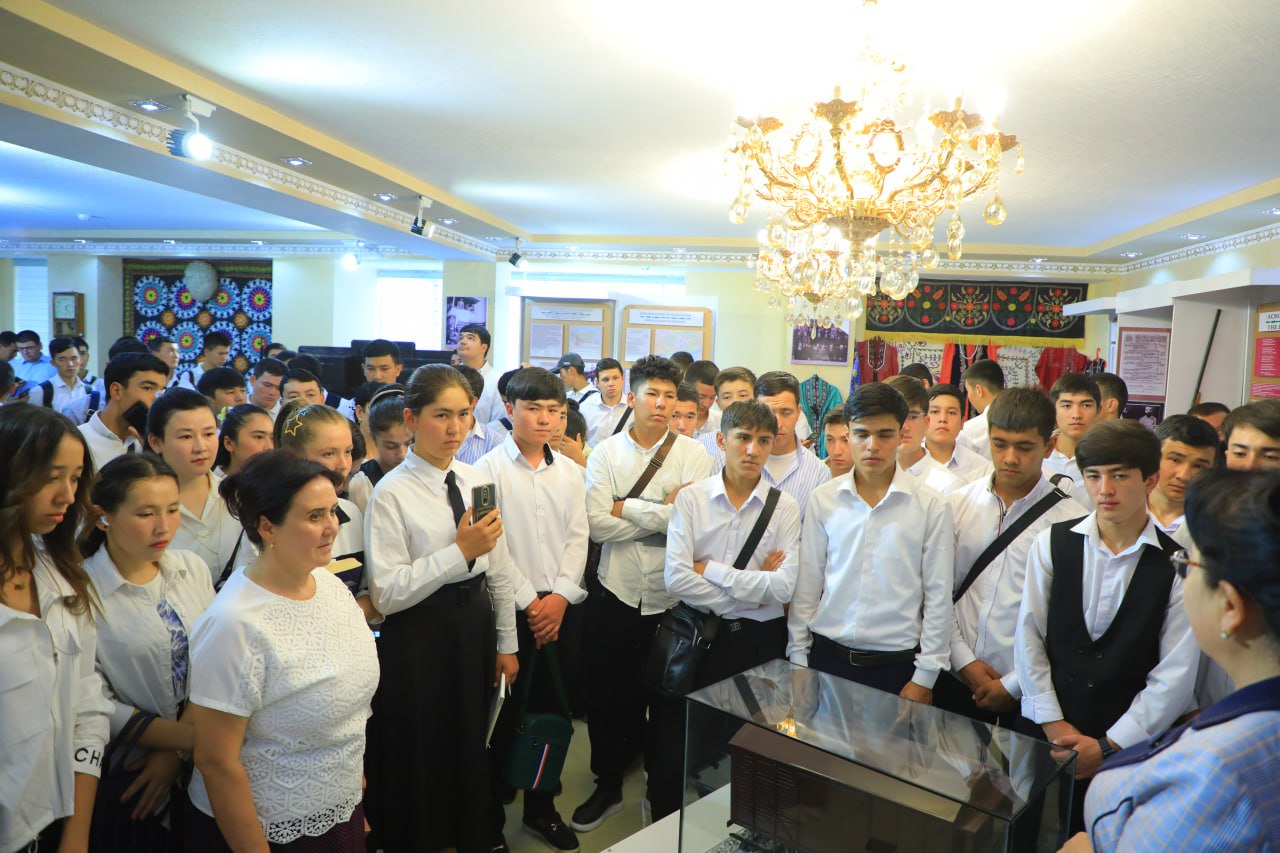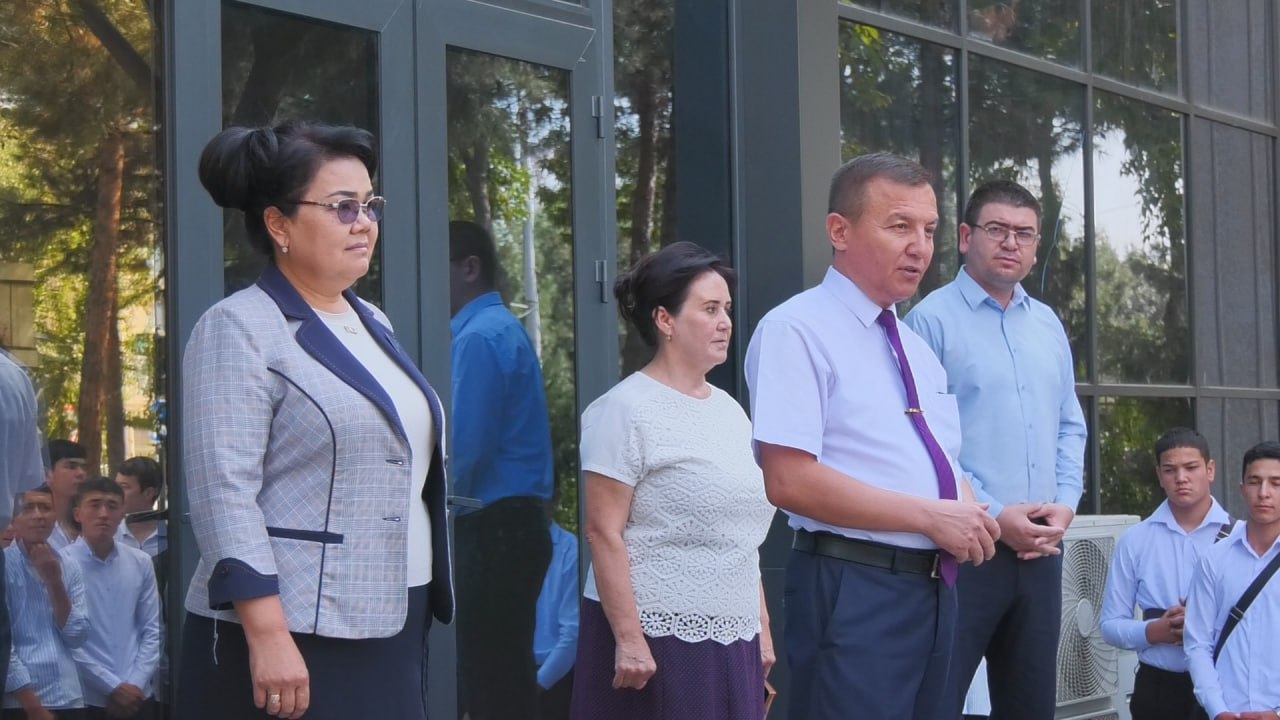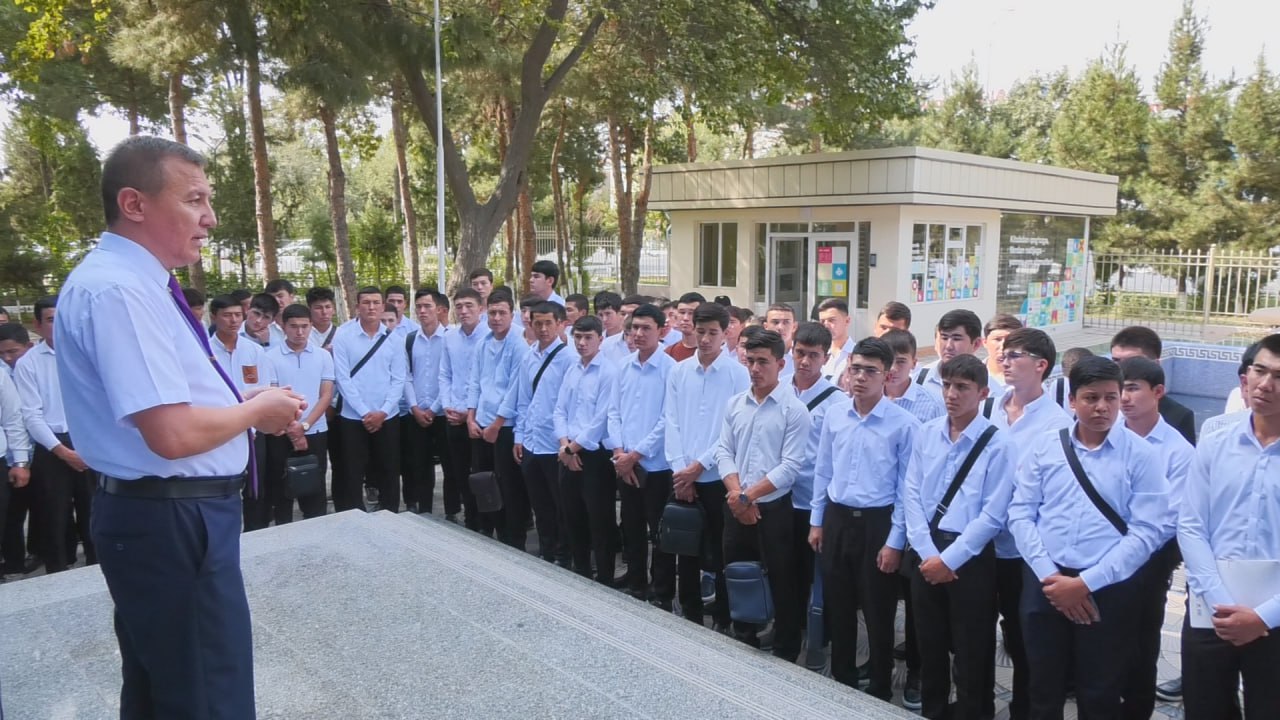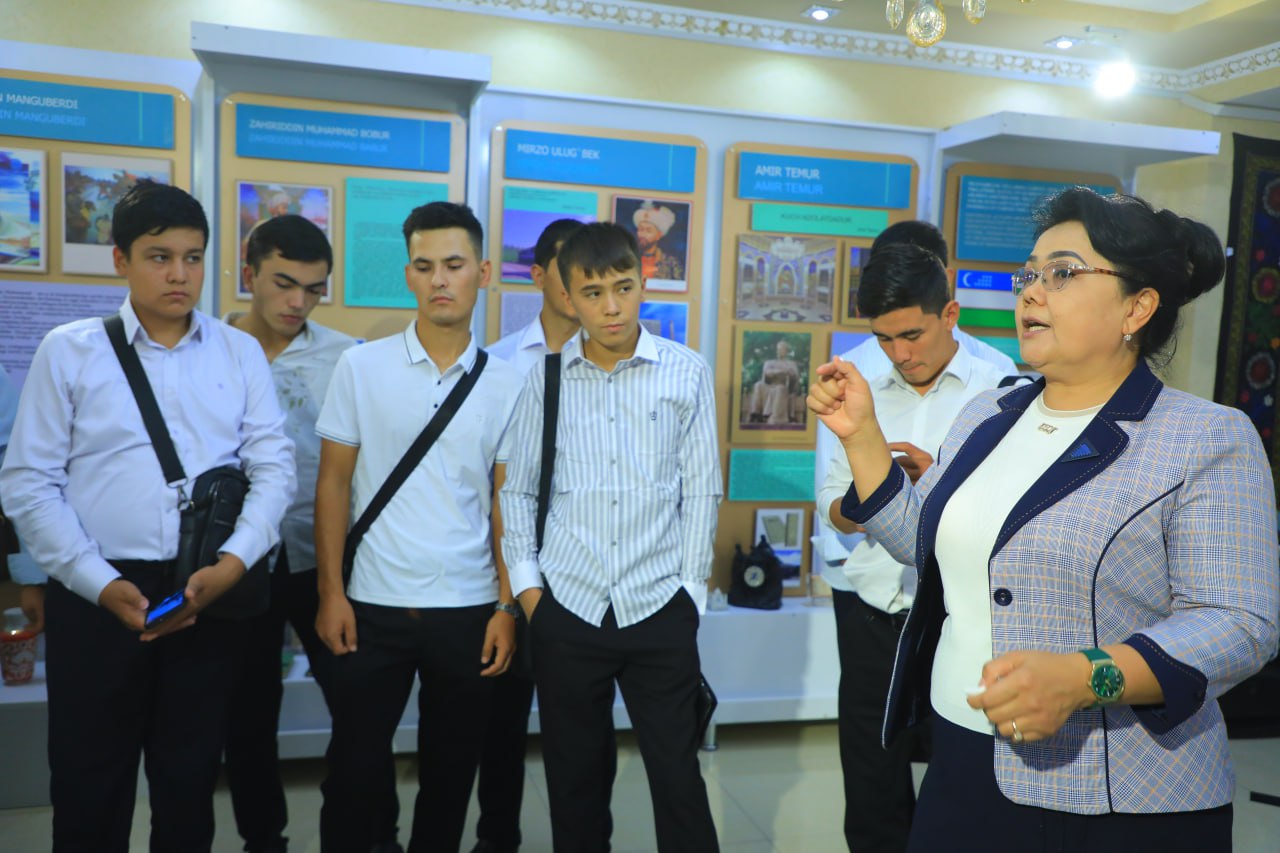



On September 6, 2025, 1st-year students from all faculties of the Jizzakh Polytechnic Institute visited the “Museum of Memory of Victims of Repression” operating at the Jizzakh State Pedagogical University named after A. Qodiri.
The main goal of this visit was to strengthen historical memory and patriotic feelings in the hearts of the younger generation, to commemorate the memory of our compatriots who became innocent victims during the era of the authoritarian regime, and to familiarize them with their lives and activities.
The director of the museum, B. Ergasheva, spoke about the opening of the “Museum of Memory of Victims of Repression” at the Jizzakh State Pedagogical University named after A. Qodiri on August 31, 2021, on the eve of the “Day of Remembrance of Victims of Repression” of the Republic of Uzbekistan, and the establishment of the museum.
Introducing the museum, the museum director noted that the museum's expositions contain important historical documents, photographs, personal belongings and archival materials about the political repressions carried out by the Soviet regime at the beginning of the 20th century, including the repressions of 1937-1938, the unjust punishment, exile and execution of Uzbek intellectuals, religious and cultural figures, poets and writers. The museum also contains information about the people's uprisings of 1916 (including the Jizzakh uprising), the life and activities of the leaders of the national liberation movement who fought against the tyrannical regime. Separate stands have been set up about the life path of Fitrat, Cholpon, Abdulla Qodiriy, Usman Nasir, Behbudiy and many other historical figures from among the intellectuals and their services to the development of the nation.
Also, during the visit, a special lecture was organized for students by Z. Yodgorov, senior lecturer of the Department of Social Sciences of the Jizzakh Polytechnic Institute.
As noted in the lecture, the Jadid movement was an enlightened movement that emerged in the late 19th and early 20th centuries, and their main goal was to rid the people of ignorance, educate them on the basis of modern knowledge, ensure their identity, and ensure national awakening.
The Jadids opened schools that taught in a new way, taught students secular subjects such as mathematics, geography, and history, and paid special attention to increasing women's literacy and developing the national press.
In his speech, Z. Yodgorov highlighted the life and work of Jadid intellectuals such as Mahmudkhodja Behbudiy, Abdulla Avloniy, Munavvarqori Abdurashidkhanov, Abdurauf Fitrat, Chulpon, Abdulla Qodiriy, as well as their unjust punishment during the repressions of 1937-1938.
The students were deeply impressed by the spiritual and educational struggle of the Uzbek people against colonial oppression through the Jadid movement, and their selflessness in preserving their national identity.


